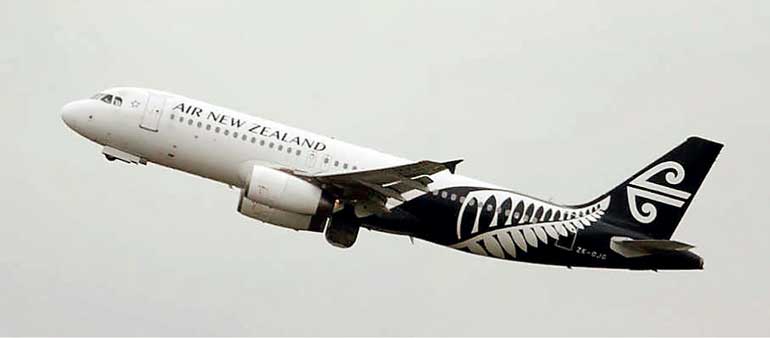Monday Feb 23, 2026
Monday Feb 23, 2026
Monday, 9 April 2018 00:00 - - {{hitsCtrl.values.hits}}
Reuters - Air New Zealand said it would end its seven-year alliance with Virgin Australia Holdings , meaning the airlines will now compete head-to-head for passengers in the hotly competitive route between the two countries.
Under the alliance, the pair had coordinated their route network, flight schedules and pricing, but when the deal expires in October they will be free to pursue different strategies for the Australia-New Zealand sector, where more than 10 million seats are offered annually by airlines flying the route.
Virgin Australia said Air New Zealand had notified it of the end of the alliance, in which the Australian carrier was the smaller partner. Air New Zealand shares rose 4% and Virgin Australia shares fell by as much on the news.

An Air New Zealand plane takes off from Kingsford Smith International Airport in Sydney, Australia, February-REUTERS/Daniel Munoz
Virgin Australia CEO John Borghetti said in a statement that following the end of the alliance, his airline might deploy its low-cost arm Tigerair Australia on flights between Australia and New Zealand for the first time.
The Air New Zealand-Virgin Australia alliance had competed against a rival offering from Qantas Airways Ltd and Emirates that got a five-year extension in March.
Emirates quit most flights between Australia and New Zealand as part of that renewed alliance, entrenching Qantas and Air New Zealand as the biggest players in the market.
As of May 2017, before the Emirates changes, Virgin Australia had a market share of 14.5% versus 33% for Air New Zealand and 31.6% for Qantas, according to data filed with Australia’s competitor regulator.
Air New Zealand has been growing capacity at a faster rate than Virgin Australia, adding more widebody jets, as it tries to entice Australian passengers to use Auckland as a hub for flights to North and South America.
Air New Zealand was once the largest shareholder in Virgin Australia, but it sold a 20% stake to Chinese conglomerate Nanshan Group in 2016 after becoming impatient with the Australian carrier’s struggle to return to profitability.